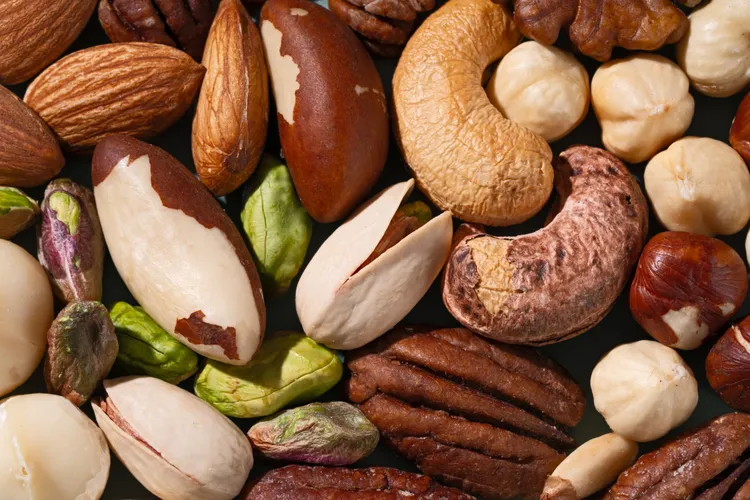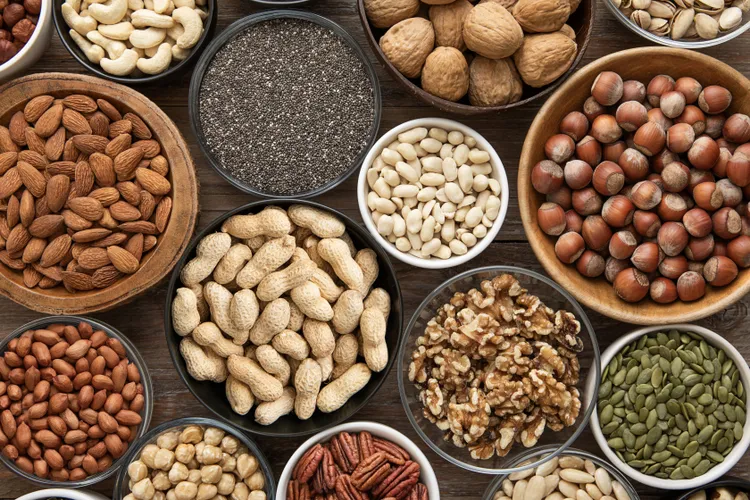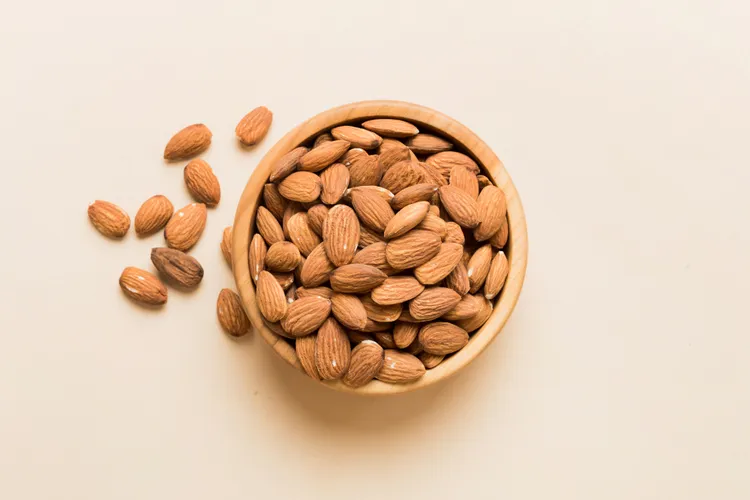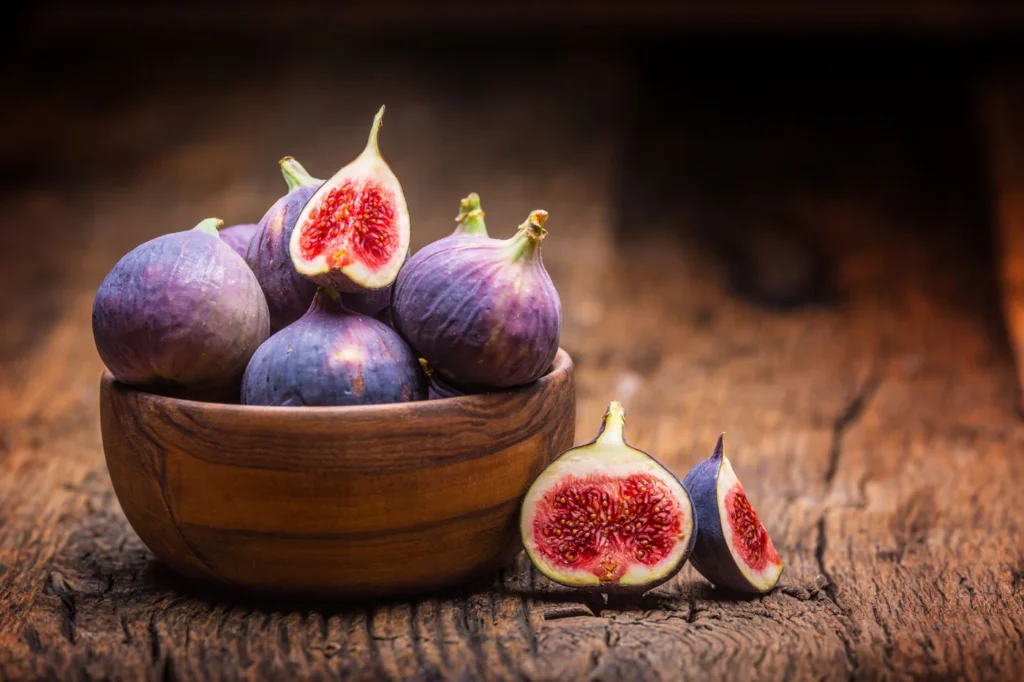7 Magnesium-Rich Foods Compared to Almonds: Better Ways to Boost Your Daily Intake

7 Magnesium-Rich Foods Compared to Almonds: Better Ways to Boost Your Daily Intake
Magnesium is one of those minerals everyone talks about but few people truly get enough of. It supports everything from muscle function and energy production to mood stability and deeper sleep. Many people rely on almonds as their go-to source—after all, they’re easy to snack on, delicious, and versatile. But while almonds are a solid choice, there are several foods that offer even more magnesium per serving, plus added nutritional benefits worth exploring.
Whether you’re trying to improve your diet naturally or looking to diversify your pantry, here are seven magnesium-rich foods compared to almonds, each bringing unique advantages to your table.
1. Pumpkin Seeds: The Mineral Powerhouse
If almonds are a reliable favorite, pumpkin seeds are the bold overachievers. These tiny green seeds contain nearly double the magnesium of almonds, making them one of the most concentrated natural sources. Pumpkin seeds are also rich in protein, iron, and healthy fats. They’re perfect sprinkled on yogurt, tossed into salads, or eaten by the handful when you need an energy boost. For anyone looking to elevate their magnesium intake quickly, pumpkin seeds are an easy upgrade.
2. Chia Seeds: Small Seeds, Big Nutrition
Chia seeds are famed for their omega-3 fatty acids, fiber, and hydration properties—but they’re also magnesium stars. Compared to almonds, chia seeds provide significantly more magnesium per ounce, while being extremely low-prep and versatile. Stir them into oatmeal, add them to smoothies, or make delicious chia pudding. Their ability to absorb liquid also makes them filling, helping with appetite control.

3. Spinach: A Leafy Green That Outperforms Almonds
Spinach may not be as convenient as a handful of nuts, but when it comes to magnesium, cooked spinach holds its own. A small serving can offer magnesium levels nearly equivalent to almonds, and because greens are so low in calories, you can eat larger portions without thinking twice. Add it to soups, stir-fries, omelets, or enjoy sautéed spinach as a quick side dish. Plus, spinach adds bonus nutrients like vitamin K, folate, and antioxidants.
4. Black Beans: A Magnesium-Rich Plant Protein
Legumes are nutritional workhorses, and black beans are no exception. A cup of cooked black beans contains more total magnesium than a handful of almonds, along with fiber, protein, and compounds that support gut health. They’re inexpensive, easy to prepare, and incredibly versatile—blend them into dips, toss them into salads, or use them in grain bowls for a filling, magnesium-friendly meal.
5. Edamame: A Gentle, Balanced Source
Edamame may not pack the same concentrated magnesium punch as pumpkin or chia seeds, but it still offers a respectable amount—especially considering its high protein content. For people who prefer savory snacks, steamed edamame sprinkled with sea salt is a plant-powered treat that beats many nuts in overall nutrient balance. Compared to almonds, edamame is lighter, refreshing, and great for anyone looking to mix plant protein with essential minerals.
6. Quinoa: A Grain With a Magnesium Edge
Quinoa isn’t just a popular “superfood” for its protein profile—it’s also an impressive magnesium source. A single cooked cup of quinoa contains more magnesium than an ounce of almonds, while providing fiber and all nine essential amino acids. It’s a great base for bowls, salads, or warm breakfast dishes. If you want a magnesium-rich alternative to rice or wheat products, quinoa is a clear winner.
7. Dark Chocolate: The Most Delicious Way to Get Magnesium
Yes, chocolate makes the list—but not your everyday candy bar. Dark chocolate with high cocoa content contains a meaningful amount of magnesium, often close to or slightly below almonds per ounce. Beyond being a guilt-free treat, it also offers antioxidants and minerals. Enjoy it in moderation for a sweet magnesium boost. Paired with almonds, it becomes the most irresistible nutrient combo around.

How Almonds Fit In
Almonds provide a moderate but steady supply of magnesium, along with vitamin E, fiber, and heart-healthy fats. They remain an excellent daily snack. But relying on them alone can get repetitive, and diversifying your magnesium sources ensures you benefit from a broader mix of nutrients.
The Bottom Line
Magnesium is easier to obtain when you embrace variety. Pumpkin seeds, chia seeds, spinach, black beans, edamame, quinoa, and dark chocolate all outperform or complement almonds in meaningful ways. Mix and match these foods throughout your week, and your body—and taste buds—will thank you.









